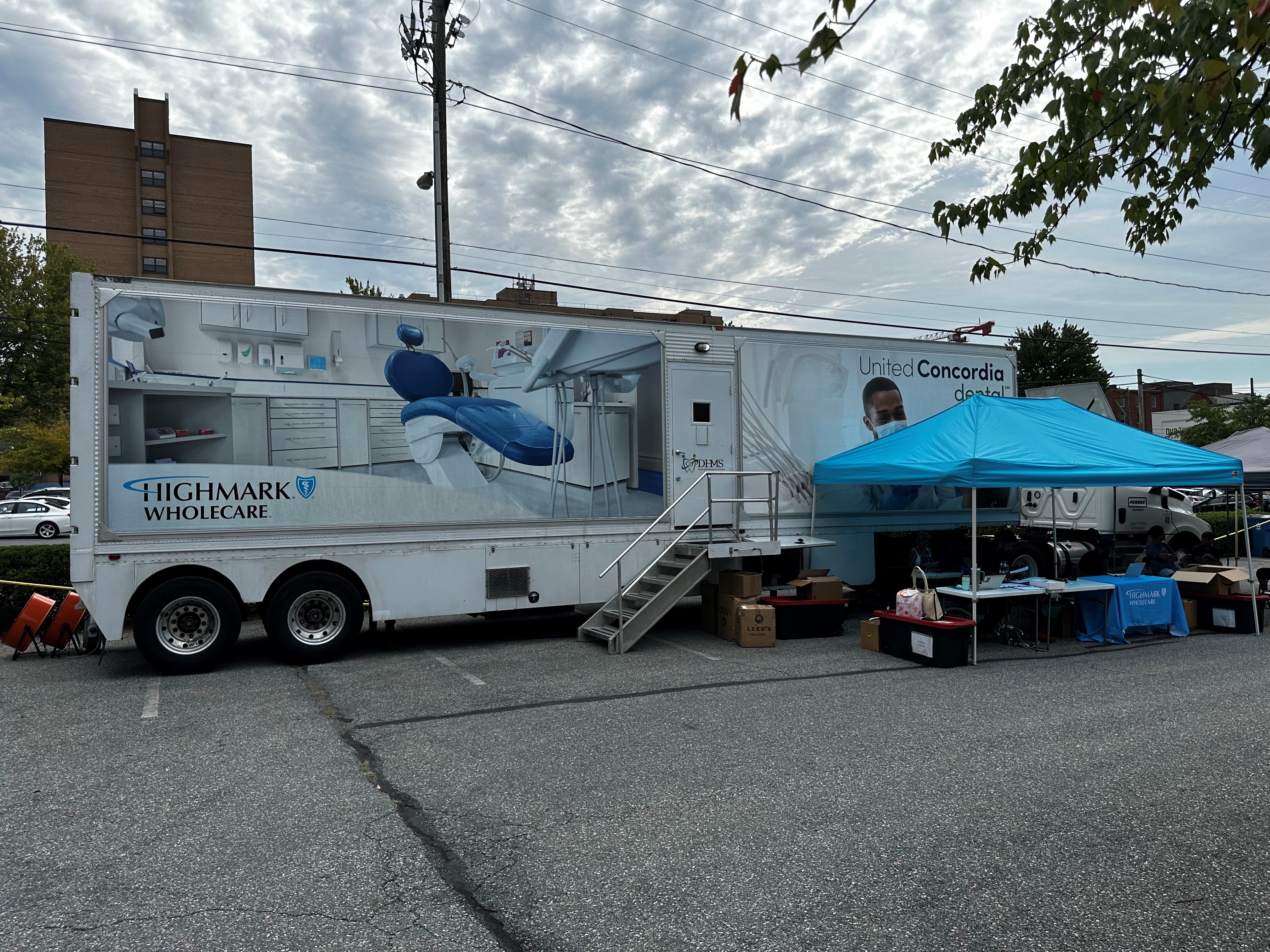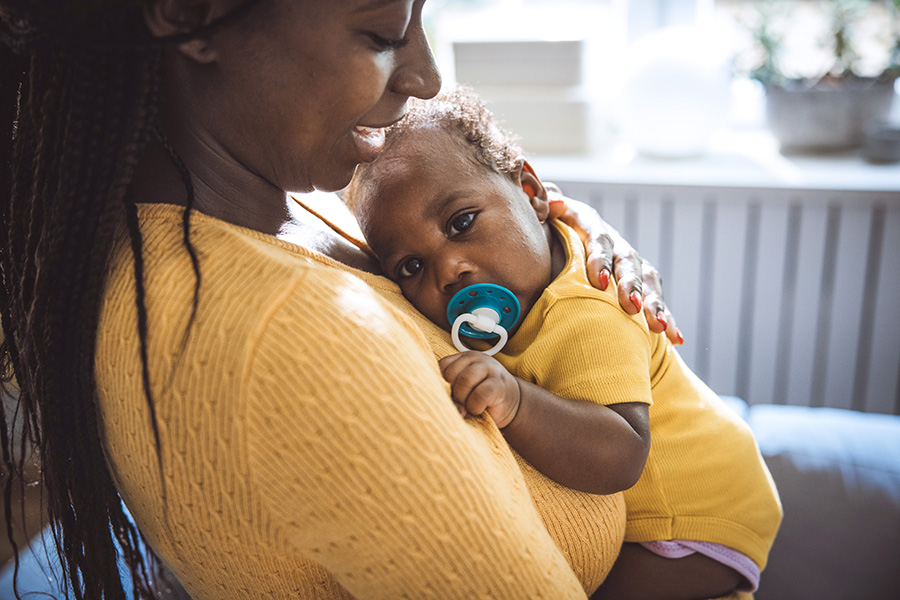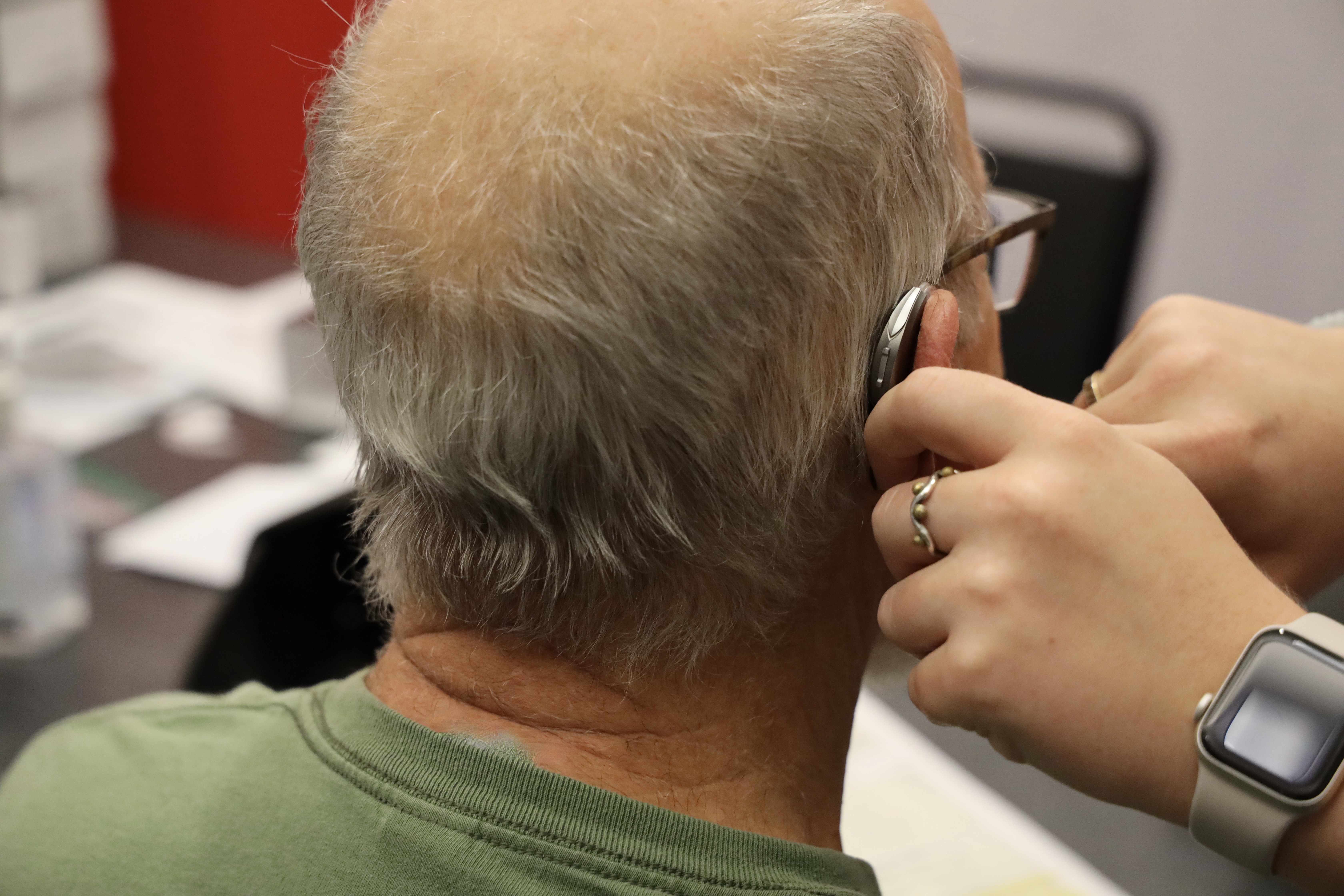No obstacle should stand in the way of receiving quality health care. Direct access to preventive care, support, and education around various diseases and programs promoting health literacy should be in every community, for all people. Location and income are not factors that should limit people's ability to find the resources and services they need most. With our 2023 support, our partners anticipate providing more than 20,000 individuals access to much-needed care.
Providing Crucial Care: Oral, Vision, and Hearing Clinics Impacted Thousands in Need

Scheduling an annual physical with a primary care physician. Getting a yearly cleaning from a dentist. Taking children for wellness visits or to fix a cavity. Buying new glasses at the eye doctor. Fitting a hearing aid with an Ear, Nose, and Throat specialist. Getting a vaccination or Covid test. The tasks above might seem like common practices on anyone’s schedule. But for many underserved urban and rural communities, access to these vital appointments and services, for both children and adults, is limited.
We are committed to supporting programs that provide direct access to care and make a lasting impact.
Some of the statistics around oral, vision, and hearing health are alarming.
Oral Health.
Oral health is essential to overall health and wellbeing, however, the CDC states that 1 in 4 adults aged 20 to 64 currently have cavities and children from low-income families are twice as likely to have untreated cavities as higher-income children.
Vision Health.
More time on the screen for both children and adults increased heavily throughout the past few years and continues to this day with cyber learning and remote work. The Centers for Disease Control and Prevention (CDC) states that an estimated 93 million adults in the United States are at high risk for serious vision loss, but only half visited an eye doctor in the past 12 months.
Hearing Health.
According to 2021 research from the National Institute for Deafness and Other Communication Disorders, roughly 28.8 million American adults could benefit from hearing aids, but only 16% of people between the ages of 20 and 69 who could benefit from hearing aids use them.
We strive to work with organizations like the ones below to bring a change to those statistics.
United Concordia Dental Mobile Dental Clinic
United Concordia Dental partnered with Highmark Wholecare and Highmark Inc. to provide more than 800 children, youth, and seniors across Pennsylvania with free dental care through its mobile dental clinic tours. Additional health services and resources were provided at some locations. Volunteer dentists and dental hygienists from United Concordia's network provided a variety of services, including exams, cleanings, X-rays, and fluoride applications.
“Each year, our mobile dental clinics reach some of the most vulnerable Pennsylvanians — children and seniors — who often have greater challenges in accessing quality and affordable dental care,” said Dr. Roosevelt Allen, DDS, MAGD, ABGD, chief dental officer, United Concordia Dental. “Oral health is such an important part of total health, and this is just one of the ways we’re invested in giving back to the communities we serve to help people in need be their healthiest.”
Mission of Mercy — Call to Care
Mission of Mercy — Call to Care is a free two-day dental, eye, and hearing care clinic held at the David L. Lawrence Convention Center in Pittsburgh for the underserved, homeless, and uninsured.
“It's a special day for me because it shines a light on the generosity and kindness of other people and what they're willing to do to help people that are less fortunate. I just think this is a wonderful thing. If I hadn’t come here today, I would probably have ended up losing a lot of my teeth because I have no dental insurance. And not having a toothache, not having pain, and not being afraid to smile — I'm overwhelmed and grateful.” — Patient, Mission of Mercy 2023
During the 2023 clinic, over 1,700 clinical and general volunteers provided health care to 1,702 patients including 1,289 receiving dental care, 825 eye exams, and 447 hearing exams. Patients also received 752 pairs of free eyeglasses, 274 free hearing aids, and 257 free blood pressure cuffs. Although the exact value of services rendered is not final, the amount should be close to $2 million.
Keith Young, chairman of A Call to Care, the nonprofit that sponsors Mission of Mercy, said, “We are becoming an integral part of the western Pennsylvania community with our annual event. The event provides critical health care to our neighbors in need right in our own backyard. Not only do our patients receive quality care, but we also strive make this a special day for our patients where they treated with dignity, and they feel valued.”
Mom-n-PA Dental Clinic
The Mom-n-PA Dental Clinic ran for two days and was held in Allentown, Pennsylvania. Over 130 dental chairs and supporting equipment were leased and set up in an arena in the Agriculture Fairgrounds Agri-Plex. More than 870 volunteers served 1,375 people, provided 8,528 procedures, and donated over 1.3 million dollars of free dental care. Services included cleanings, x-rays, fillings, pediatric care, root canals, dentures, extractions, and medical and dental screenings.
Vision to Learn
Vision to Learn (VTL) provides a proven solution that bridges educational achievement and healthcare access gaps. Their mobile clinics, staffed by licensed doctors, bring eye exams and glasses to children where they are everyday — schools and community organizations right in their neighborhood, at no cost to the student or family. VTL served students throughout Delaware's high-need communities by providing vision screenings, eye exams, and glasses. VTL has helped connect more than 35,000 children to care and has provided more than 18,000 eye exams and 14,500 glasses to students in need.
CATE Mobile Unit
CATE, which stands for Community-Accessible Testing & Education, was Pennsylvania's first COVID-19 Mobile Vaccination Unit. It provided affordable, accessible, and bilingual COVID-19 education, testing, and vaccinations to vulnerable communities across Pennsylvania.
CATE has reached and helped tens of thousands of Pennsylvanians and continues to expand its footprint and impact. While the unit still provides vaccinations, it is growing its focus and looking into a whole care approach.
“We're already looking at partnerships around obesity and cardiovascular oral health,” said Fernandez. “We’re even looking at financial health. Financial health is one of the pillars of social determinants of health. We are really looking at the overall whole care approach as we consider ways to reach our communities.”
We will continue to work with partners in the community to help get care to the areas, and to the people that need it most.

Prenatal.
Perinatal.
Postnatal.
Each stage of maternal health brings its own unique set of experiences, and all women go through a very personal process.
We support maternal health initiatives in a variety of ways, including supporting the Buffalo Urban League’s efforts to enhance minority women’s sense of empowerment through increased knowledge and advocacy for self and baby, and funding a 30-minute documentary, in partnership with WQED, entitled "You're Not Alone…Pregnancy, Postpartum and The Mental Health Crisis." We are devoted to improving care for mothers and babies everywhere, and one of the ways we furthered that mission this year was through Delaware BluePrints and our funding of Black Mothers in Power (BMIP), a community-based doula program expansion which seeks to improve outcomes through Doula training and advocacy, as well as to address depression, child-parent bonds, self-esteem, and breastfeeding outcomes. BMIP seeks to eradicate maternal health disparities for Black women throughout Delaware for women like Marquisha, who shared her story working with her doula, La'Vonda
"My pregnancy was high risk, which left me grappling between several conflicting recommendations from my physicians on the do’s and don’ts of my pregnancy journey. Not to mention, I was also very anxious and aware of the hard statistics about the risks of being a pregnant black woman in my mid-30s. "
According to Women's Advancement and Advocacy Delaware, maternal and infant mortality rates are consistently higher for Black women and infants compared to White populations. The research shows more than twice as many Black infants in Delaware die before their first birthday than White infants and nationally, Black women are three to four times more likely to experience a pregnancy-related death than White women.
"I really wanted to have someone that I personally could trust to be in my corner outside of the hospital setting. I knew I wanted a black doula and I needed that person to help support me with resources, provide guidance to navigating the physicians and healthcare systems, support with creating a birth plan, provide stress management tools, and information on holistic approaches to pregnancy and labor. Lovi was highly recommended by a close friend, and I was familiar with Lovi’s work as a fellow social worker/therapist. So, I didn’t hesitate to call when I was ready. I appreciated her quick and prompt response to initiate services. Lovi was very professional, yet so very personable. She provided my partner and me with the support we were looking for and more. My burning need for resources was also met. Lovi provided tons of evidence-based articles, guiding videos, personal stories, and suggestive birthing and parenting tools that I was able to find useful even while I was in labor. "
Doulas are non-clinical professionals who emotionally and physically support women during the perinatal period, including birth and postpartum and research suggests that having a doula during the perinatal period improves health outcomes for mother and baby. National research suggests that Doula-assisted mothers were four times less likely to have a low-birth-weight baby, two times less likely to experience a birth complication involving themselves or their baby, and significantly more likely to initiate breastfeeding.
Community-based doulas provide culturally sensitive pregnancy and childbirth education and early linkage to health care and other services. In this program, women working with a doula will receive two prenatal visits to assess their need and desire for birth and to provide them with labor tools; explanations of birth preferences; access to books and videos on pregnancy, birth, and baby care; continuous physical, emotional, and informational support to the mother and her partner for the duration of labor and birth; initial breastfeeding support; a postpartum visit to celebrate the birth and answer questions; and unlimited phone, text, and email support to answer questions and offer suggestions and support throughout pregnancy and early labor.
"Lovi's effort to give daily affirmations and words of validation provided an extra layer of reassurance that I needed to embrace the challenges of pregnancy. The process of creating the birth plan in sessions really encouraged my partner and me to have tough conversations about what we wanted this journey to look like in the present and beyond labor. She mediated those shared differences we had amongst each other, and we were able to compromise. Lovi was very solution-focused during the times we needed it the most, and that was very important to me. No question was left unanswered. Also, my partner was always fully engaged in sessions and he often expressed feelings of satisfaction afterwards. I think this speaks to Lovi’s ability to support and engage both mothers and fathers equally. "
"My postpartum sessions with Lovi were dear to me. Lovi was one of my biggest cheerleaders as I successfully gave birth and helped me recognize that I reached many of my birth plan goals. She also quickly answered the calls to help support me through breastfeeding challenges and provided recommendations/solutions that helped me overcome some tough moments. "
This work complements that of The Enterprise Equitable Health Institute (EEHI) within Highmark, an enterprise-wide effort dedicated to advancing a comprehensive internal and external strategy to promote a culture of equity and inclusion.

The first time you took a book home from the library you chose all by yourself.
The classic bedtime stories a loved one would read to you as you were snug in your bed.
Your favorite teacher holding open a book in class to read the words as you looked at the illustrations.
No matter how and where stories were introduced to you as a young person, it made an impact. The power of reading and the joy of books is a gift are gifts all children should experience. Gaining access to books and finding stories with diverse representation or that are written in different languages, is vital to the success of a child’s reading journey.
To help with this process, we supported multiple health literacy initiatives this year, including donations to Reach Out and Read (ROR) for Rx for Early Literacy in Delaware, through Delaware BluePrints, and Rx for Early Literacy in Western New York, through the Blue Fund in Buffalo, New York.
ROR is a national nonprofit that champions the positive effects of reading daily and engaging in other language-rich activities with young children.
At the Community Health Center of Niagara in Niagara Falls, New York about 400 culturally, linguistically, and age-appropriate books are given to families each year. That is just one provider of this fantastic program.
"I strongly recommend supporting Reach Out and Read to anyone who is committed to improving the lives of young children," said Dr. Robertus Salis, a pediatrician at Community Health Center. "This program is making a real difference in the lives of families and children, and it deserves our recognition."
Studies show that reading together promotes healthy brain development, furthers language acquisition and helps families build meaningful bonds. ROR is the only national pediatric literacy model to be endorsed by the American Academy of Pediatrics and it serves 4.4 million children across the U.S., more than half of whom come from low-income households.
Rx for Early Literacy in Delaware incorporates books into medical sites in Delaware specializing in pediatric care to increase visit completion and patient experience.
In Delaware, 62% of the families served use Medicaid, another public insurance or are uninsured and only 35% of children from low-income families are proficient in reading by 3rd grade. Rx for Early Literacy in Western New York is focused on children in the highest-need communities in Western New York.
Only 24% of children from low-income New York households are proficient in reading by 4th grade. ROR improves health outcomes and reading skills in these populations through a research-based model delivered at well-child visits, especially those at Federally Qualified Health Centers (FQHCs.)
"Although we engage children and their families in many wonderful interventions and programs at Wheatfield Pediatrics, there is one that I am especially proud of including in the care that we provide at our office — Reach Out and Read," said Dr. Joseph C. Wittmann. "Thirty percent of our children are from underserved communities. This is more than a book giveaway program. It allows me to make critical observations of a child's development in a way that engages both the child and their parent. During regular pediatric check-ups from infancy through age five, Wheatfield Pediatrics' doctors and ancillary providers give new, developmentally appropriate books to children, and advise parents about the importance of reading aloud. As a result, parents learn new ways to stimulate their children's literacy development, have more books in the home, and read to their children more. Parents are supported as their children’s first and most important teachers, and children grow up to be readers."
We are proud to be part of the next chapter of improved reading literacy for children in our community.